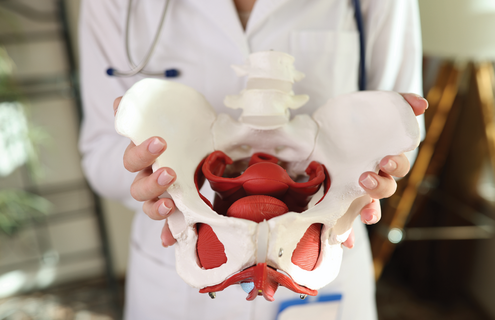
May is Pelvic Health Awareness Month. Pelvic health involves taking care of the muscles and organs in the lower belly to keep them working well and feeling good. Many people don't realize the importance of pelvic health – until problems arise.
What is the pelvic floor, and how is it related to pelvic health? The pelvic floor is a group of muscles and tissues at the bottom of the pelvis. Everyone has a pelvic floor, regardless of gender.
“We all need to control our bladder and bowels, have healthy sexual functioning, and stay stable when we move,” said Melissa Chapin, a physical therapist at APD. “Pelvic health means your pelvic floor muscles are strong and flexible enough to support those important functions and organs. All the parts are closely connected, so if one part of the pelvis has issues, it can affect other areas.”
Who needs to know about pelvic health?
Everyone! But it's especially important for athletes, pregnant women, older adults, or anyone who has had symptoms of pelvic problems.
“Knowing about the pelvic floor can help you notice any changes that might need medical attention,” said Melissa. “This knowledge can help you be an active partner in your own healing, together with your care provider.”
What should I watch for when it comes to pelvic health?
Look out for signs that might suggest a problem with your pelvic health, such as:
- Feeling a sudden need to use the bathroom
- Having accidents with urine or stools
- Feeling heavy or like something is bulging in your lower belly
- Having pain in the pelvic area, especially during activities like sex
How can I get help with pelvic health issues?
If you think you have a problem with your pelvic health, your care provider might refer you to a pelvic floor physical therapist (PFPT). A PFPT can identify what's wrong and help you get better with special exercises and advice. APD offers these services to anyone 18 or older.